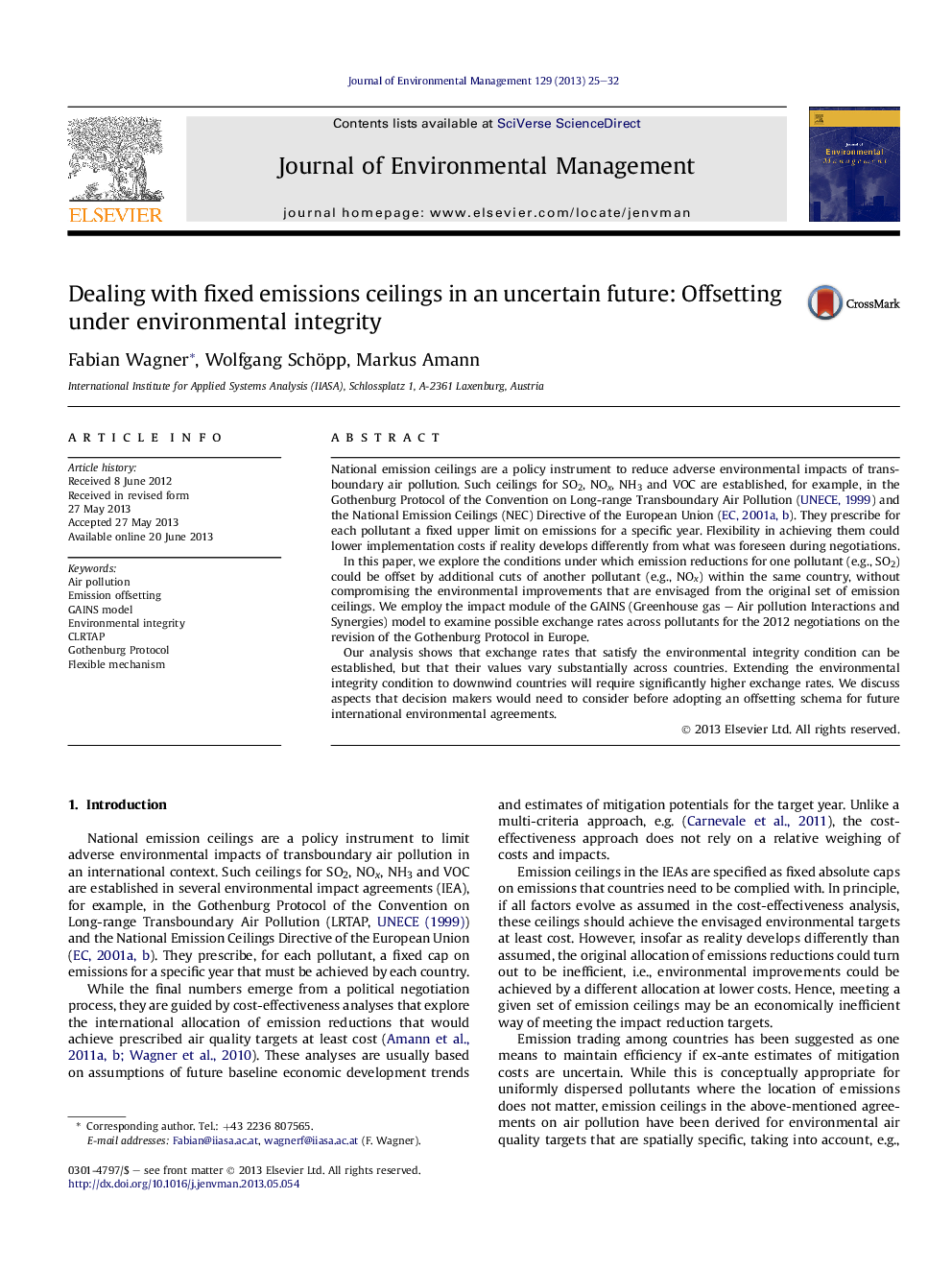| کد مقاله | کد نشریه | سال انتشار | مقاله انگلیسی | نسخه تمام متن |
|---|---|---|---|---|
| 1056141 | 1485283 | 2013 | 8 صفحه PDF | دانلود رایگان |

• A flexible mechanism for international air pollution control is proposed.
• Emission offsetting rules are derived that respect environmental integrity.
• Values of exchange rates between pairs of pollutants are calculated.
• The importance of down-wind effects is estimated.
• Implications for the revision of the Gothenburg Protocol are discussed.
National emission ceilings are a policy instrument to reduce adverse environmental impacts of transboundary air pollution. Such ceilings for SO2, NOx, NH3 and VOC are established, for example, in the Gothenburg Protocol of the Convention on Long-range Transboundary Air Pollution (UNECE, 1999) and the National Emission Ceilings (NEC) Directive of the European Union (EC, 2001a and EC, 2001b). They prescribe for each pollutant a fixed upper limit on emissions for a specific year. Flexibility in achieving them could lower implementation costs if reality develops differently from what was foreseen during negotiations.In this paper, we explore the conditions under which emission reductions for one pollutant (e.g., SO2) could be offset by additional cuts of another pollutant (e.g., NOx) within the same country, without compromising the environmental improvements that are envisaged from the original set of emission ceilings. We employ the impact module of the GAINS (Greenhouse gas – Air pollution Interactions and Synergies) model to examine possible exchange rates across pollutants for the 2012 negotiations on the revision of the Gothenburg Protocol in Europe.Our analysis shows that exchange rates that satisfy the environmental integrity condition can be established, but that their values vary substantially across countries. Extending the environmental integrity condition to downwind countries will require significantly higher exchange rates. We discuss aspects that decision makers would need to consider before adopting an offsetting schema for future international environmental agreements.
Journal: Journal of Environmental Management - Volume 129, 15 November 2013, Pages 25–32